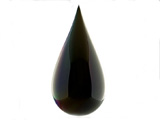|
|
TODAY.AZ / Weird / Interesting
The Last Drops: How to bridge the gap between oil and green energy
13 July 2011 [11:38] - TODAY.AZ
 For all our talk of an online future unbounded by physical limits, life in our increasingly global economy still requires the movement of actual people and things, often over long distances. And without a steady supply of prehistoric hydrocarbons, that movement would come to a halt. More than 95 percent of the vehicles on Earth--from cars to trucks to freighters to jumbo jets--run on oil products, and without them we’d be hard-pressed to commute to the office or import our gadgets, much less till our fields or get food from the farm to our kitchens. For now, we must have oil.
For all our talk of an online future unbounded by physical limits, life in our increasingly global economy still requires the movement of actual people and things, often over long distances. And without a steady supply of prehistoric hydrocarbons, that movement would come to a halt. More than 95 percent of the vehicles on Earth--from cars to trucks to freighters to jumbo jets--run on oil products, and without them we’d be hard-pressed to commute to the office or import our gadgets, much less till our fields or get food from the farm to our kitchens. For now, we must have oil.Our dependence on oil is driven less by the political might of the oil industry than it is by the fact that oil itself is a terrific source of power. It packs more energy into less space than any other commonly available resource, and it requires much less energy to produce. In the Middle East, where “easy” oil remains most plentiful, drillers need only invest a single barrel’s worth of energy to produce a full 30 barrels of crude. That is among the highest ratios of energy returned on energy invested, or EROEI, for any widely available source of power on the planet. (That same barrel’s worth of production energy, for instance, would get you fewer than two barrels of corn ethanol.) Oil’s amazing efficiency is one reason it remains in such high demand, especially for transportation, and it’s also why finding an alternative will be so difficult.
But find one we must. We have already burned our way through most of the world’s easy oil. Now we’re drilling for the hard stuff: unconventional resources such as shale and heavy oil that will be more difficult and expensive to discover, extract, and refine. The environmental costs are also on the rise. Oil production remains a significant local ecological hazard—as we were reminded by the disastrous failure of the Deepwater Horizon well in the Gulf of Mexico last year--even as oil’s large carbon footprint threatens the global environment as a whole.
Bridging the gap between our current oil economy and an as-yet-undefined clean-energy economy will not be easy. Alternative systems, such as hybrid cars powered by biofuel drawn from oceanic algae farms, may be vastly more sustainable someday. But “sustainability” is an economic concept as much as it is an environmental one. People will always prefer cheap energy to expensive energy. (Indeed, many people in less-wealthy nations require cheap energy simply to survive.) And the process of making alternative energy systems affordable will be long and uncertain, in part because the oil-based systems they must compete against (internal combustion engines, for instance) will themselves become even more efficient and alluring.
/Popular Science/
URL: http://www.today.az/news/interesting/90276.html
 Print version
Print version
Views: 2123
Connect with us. Get latest news and updates.
See Also
- 06 December 2024 [22:20]
Are scented candles harmful to health? - 23 November 2024 [14:11]
Magnitude 4.5 earthquake hits Azerbaijan's Lachin - 20 November 2024 [23:30]
Launch vehicle with prototype of Starship made its sixth test flight - 27 October 2024 [09:00]
Fuel prices expected to rise in Sweden - 24 October 2024 [19:14]
Turkiye strikes terror targets in Iraq and Syria - 23 October 2024 [23:46]
Kazakhstan supplied almost entire volume of oil planned for 2024 to Germany in 9 months - 23 October 2024 [22:17]
Taiwan reported passage of Chinese Navy aircraft carrier near island - 23 October 2024 [21:50]
Russia remains largest oil supplier to India - 16 October 2024 [17:54]
Gamesummit co-founder shares insights on future of gaming industry in Azerbaijan [EXCLUSIVE] - 12 October 2024 [18:27]
TikTok cuts jobs, turns to AI for content moderation
Most Popular
 Azerbaijan, Colombia Discuss Cooperation in Various Fields
Azerbaijan, Colombia Discuss Cooperation in Various Fields
 Armenian militant group threatens regional stability aligning with PKK/YPG in new ground
Armenian militant group threatens regional stability aligning with PKK/YPG in new ground
 Azerbaijan and Qatar strengthen environmental cooperation, says Minister
Azerbaijan and Qatar strengthen environmental cooperation, says Minister
 Armenian History in Crisis: Mirzoyan, Textbook and Colosseum
Armenian History in Crisis: Mirzoyan, Textbook and Colosseum
 Azerbaijani delegation attends "Vietnam Defence Expo 2024" in Hanoi
Azerbaijani delegation attends "Vietnam Defence Expo 2024" in Hanoi
 West has no interest in him: the United States has disowned Vardanyan
West has no interest in him: the United States has disowned Vardanyan
 Azerbaijani and Turkish parliament speakers meet in Ankara
Azerbaijani and Turkish parliament speakers meet in Ankara
